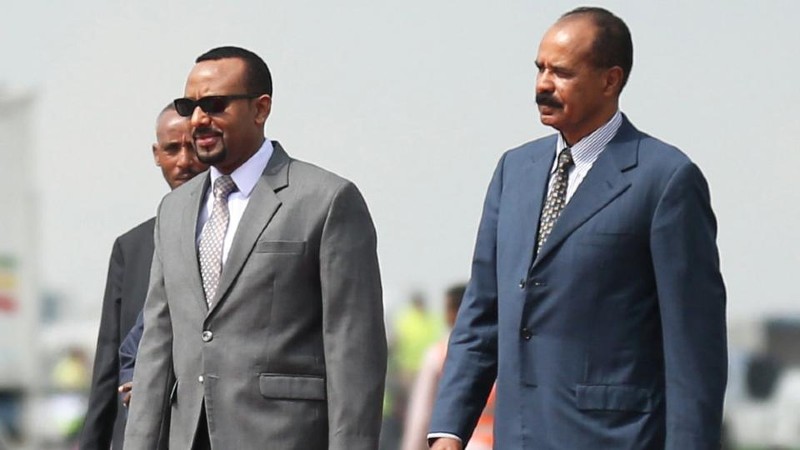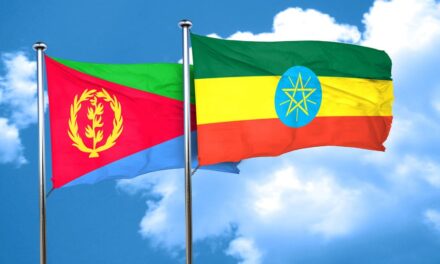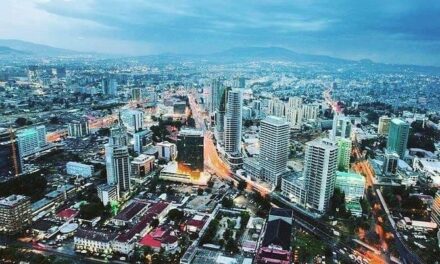By: Fikrejesus Amahazion, Ph.D. (Dr. Fikrejesus is an Assistance Professor of Sociology and Political Science at Eritrea’s College of Arts and Social Sciences, in Asmara).
On December 8, 2020, Reuters reported that a US official and other diplomatic sources have backed accusations that Eritrean soldiers are fighting alongside Ethiopian troops to help the latter’s law enforcement operation against the Tigray People’s Liberation Front (TPLF). According to the report, evidence of Eritrean involvement cited by the US includes satellite images, intercepted communications, and anecdotal reports from the Tigray region.
Unfortunately, reports of Eritrean involvement and fighting in Tigray have led to an abundance of hype and a lot of critical commentary, much of which completely ignores or fails to properly contextualize a number of key points.
Firstly, both Eritrea and Ethiopia have denied claims about Eritrea’s involvement in the operation against TPLF. Notably, on Wednesday, Antonio Guterres, Secretary-General of the United Nations declared, “We have no proof of the presence of Eritrean troops inside Ethiopia. [T]he only area where they are is the area that corresponded to the disputed territory between the two countries that, in the peace agreement, was decided to give back to Eritrea.” Additionally, over many years, as well as throughout the duration of the ongoing conflict, the TPLF has proven itself highly savvy and adept at disinformation and propaganda campaigns. Recall that prior to and at the beginning of the conflict, the TPLF was allegedly manufacturing and dressing its soldiers in uniforms resembling those of the Eritrean army in order to “implicate the Eritrean government in false claims of aggression against the people of Tigray”.
TPLF has also made numerous claims regarding battlefield successes and incidents which were quickly refuted. These things must all be kept firmly in mind as one considers any allegations about Eritrean military involvement or troop levels in Tigray.
Secondly, even if the claims about Eritrea’s alleged military involvement in Tigray were true, it is important to note that it would only be possible through the total agreement and full consent of the Ethiopian federal government – the legitimate governing authority in the country. This would seem to make it quite different to the large-scale illegal invasion or criminal marauding attack that it is being portrayed as. It is also worth recalling that over the past several years there have been countless instances of Western states supporting other states in conflicts based upon the request of the latter.
For example, several years ago Canada justified its airstrikes in Iraq as being upon the request of the government of Iraq, while numerous other examples are available from foreign states’ involvement in Iraq, Libya, Mali, Pakistan, Somalia, Syria, and Yemen. These examples of foreign support and involvement are generally far from controversial; instead, they are regarded as standard, legitimate, and necessary.
In fact, quite often countries involved promote their actions as righteous, just, and honorable. Even the TPLF’s own late 2006 invasion of Somalia, which violated UN Security Council Resolution 1725, was defended by many of those now criticizing Eritrea’s alleged involvement in Ethiopia. This was since the TPLF declared its invasion of Somalia was in response to the invitation by the Somali Transitional Federal Government (that it had long been propping up and which retained little legitimacy among the Somali population).
Third, it is rather unfortunate, but hardly surprising, that important historical context continues to be ignored; as TPLF led government had occupied large swathes of Eritrean land for more than two decades.
Ultimately, for neutral observers, it is important to note that TPLF’s accusation of Eritrea’s involvement was not corroborated by actual evidence. Hence, the allegation is most likely nothing but a failed disinformation campaign by the TPLF.
Additionally, the TPLF’s nearly 30-year long reign over Ethiopia was marked by massive levels of corruption, harsh and violent crackdowns on civil society organizations, journalists, and all forms of dissent or opposition, the illegal invasion and military occupation of other neighboring countries (such as Somalia), the exclusion and marginalization of several of Ethiopia’s major ethnolinguistic and religious groups from political and economic life, the denial of humanitarian and food aid from “disloyal” segments of the country, authoritarianism and stolen elections, and counterinsurgencies involving war crimes and crimes against humanity (including executions, rape, torture, arbitrary arrests, and various other abuses).
However, rather than criticize or punish the TPLF for its various international and domestic crimes, the international community and the international media actually rewarded it. Based on the belief that the group was vital to protecting Western geostrategic interests and foreign policy aims, the TPLF was provided with seemingly unlimited economic, military, and diplomatic support, while its various transgressions and crimes were completely ignored.
Within this long, troubling historical context, many of the criticisms now being raised ring hollow and reflect extreme hypocrisy. Furthermore, the international community’s refusal to acknowledge or properly account for its past role and failings means that it will struggle to exert any meaningful or positive influence in the region moving forward.
Last, some commentators and so-called experts have attempted to cast Eritrea’s alleged involvement in Tigray as confirmation that Eritrea has actively been planning and pursuing conflict all along. This is false and contradicted by the basic facts.
Remember that even as its lands were under a long illegal occupation, Eritrea exercised extreme patience and restraint, declining to be drawn into another destructive war. Instead, it repeatedly called on the international community to shoulder its moral and legal obligations to ensure the rule of law and support peace.
Then, two and half years ago, Eritrea agreed to peace with Ethiopia, which was initiated by prime minister Abiy Ahmed. The hope and aim was to end a long, dark chapter between the countries and move forward together in peace and cooperation. However, although the initiatives were almost universally welcomed and broadly applauded, there were deep pockets of discontent in Tigray. Almost from the outset, the TPLF (along with several other elements in the region) sought to scuttle the positive developments ushering in the possibility for lasting regional peace, stability, and security.
Undeniably, Abiy’s leadership in Ethiopia has been far from perfect since he assumed office. His government has made mistakes. However, the TPLF was also intransigent and strongly obdurate. It sought to stymie any efforts at democratization, reform, and change. Feeling increasingly marginalized, as well as deeply bitter and resentful about its loss of power and control over looted state resources, the TPLF retreated to its base in Tigray. It worked to promote conflict, tension, and chaos, hoping that the instability and insecurity would hurt Abiy, prevent reforms, and allow the group to regain some of its former dominance.
The TPLF’s commitment to continued international aggression was also abundantly clear. Over the past several years, the group was actively preparing for war, stockpiling weapons, and training militias (using funds that were actually to be for Tigray’s people and development). After the Eritrea-Ethiopia peace deal, numerous military and security threats emanating from the TPLF were uncovered in or near Eritrea, including weapons smuggling, attempts to sow disorder, and the clandestine movement of large numbers of TPLF troops and heavy artillery along vast stretches of the border. Moreover, the TPLF blocked all federal attempts to fully implement the 2002 EEBC (Ethiopia and Eritrea Border Commission) border deal, while it rejected outright any attempts to establish formal and institutionalized mechanisms at the border.
The TPLF then setoff the current conflict when, after months of simmering tensions with the federal government, it launched a deadly attack on a large national military base in Tigray in early November, as revealed by senior TPLF officials. It also admitted launching of rockets targeting Asmara, Eritrea’s capital.
This conflict did not arise in Asmara. It was driven by the TPLF, who firmly believed they could easily defeat the Ethiopian federal government and its army in a conventional confrontation and then be able to regain some of their lost power and influence. Clearly, the TPLF was wrong. And its hope of returning to Addis Ababa has seemingly been crushed.
(The views expressed in this post do not represent the views by East-Africanist. The views are solely that of the author.)





